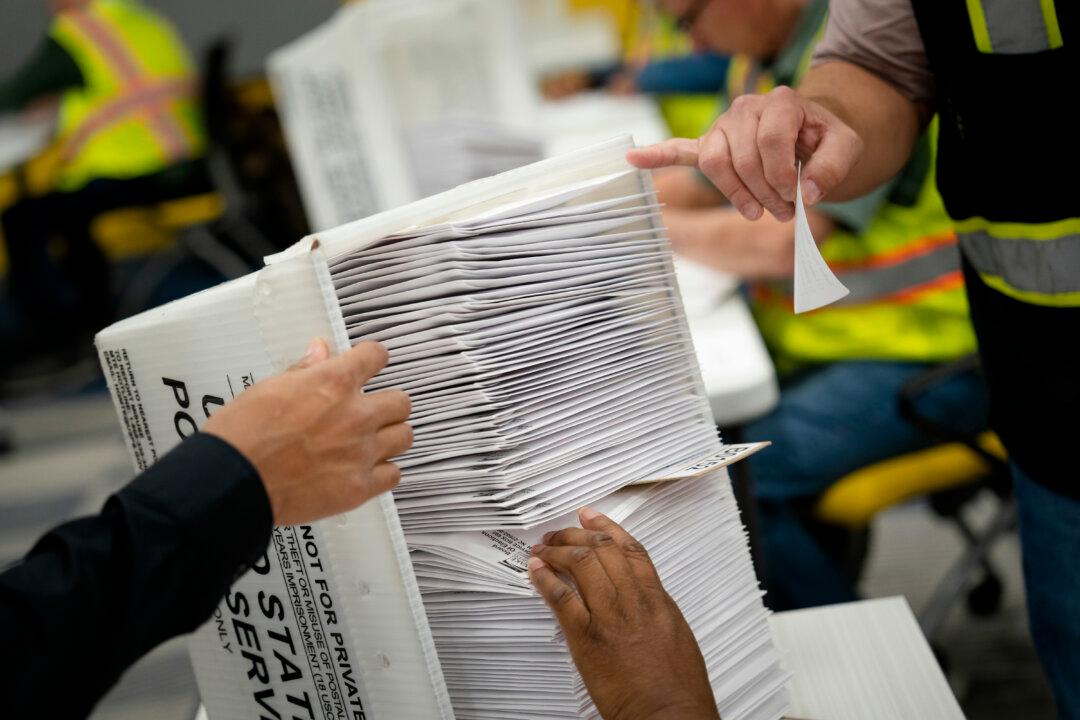The U.S. Centers for Disease Control and Prevention (CDC) stated on Aug. 23 that the new BA.2.86 COVID-19 lineage may cause infection in people who received vaccines or previously had the virus.
The CDC stated that it’s too soon to know whether this might cause more severe illness than previous variants. But because of the high number of mutations detected in this lineage, there are concerns about the effectiveness of immunity from vaccines and previous infections, according to the agency.
But it also stated that “virus samples are not yet broadly available for more reliable laboratory testing of antibodies, and it is too soon to know the real-world impacts on immunity.”
The agency noted that it detected at least two cases with the BA.2.86 variant in the United States, although few other details were provided. It was also found in Israel, the UK, South Africa, and Denmark.
One of the BA.2.86 cases was found in a person detected via the CDC’s traveler surveillance system, while it noted that cases being found in several countries is evidence of international transmission.
“Notably, the amount of genomic sequencing of SARS-CoV-2 globally has declined substantially from previous years, meaning more variants may emerge and spread undetected for longer periods of time,” the assessment reads. “It is also important to note that the current increase in hospitalizations in the United States is not likely driven by the BA.2.86 variant. This assessment may change as additional data become available.”
The agency stated on Aug. 23 that the slight recent increase in hospitalizations in the United States isn’t likely driven by the BA.2.86 lineage.
Based on an analysis of the mutations to the new virus, the CDC stated that COVID-19 tests and antiviral drugs are likely still going to work against it.
“At this time, we don’t know how well this variant spreads, but we know that it spreads in the same way as other variants,” the agency stated.

But some scientists warned that people shouldn’t jump to conclusions about the variant.
Michael Osterholm, head of the University of Minnesota’s Center for Infectious Disease Research and Policy, told Stat News that the new subvariant should be monitored closely, but he noted that a large number of subvariants and variants of COVID-19 didn’t take off.
“I assume that all are innocent until proven guilty,” he said,
And based on the evidence so far, the threat of BA.2.86 isn’t clear, a CDC spokesperson said.
The CDC statement comes as Moderna, Pfizer, and Novavax are slated to release updated COVID-19 vaccines this fall, again possibly making them available for all ages. There’s anticipation that the U.S. Food and Drug Administration will authorize the vaccine booster shots in the coming weeks.
It also comes as a small number of businesses, schools, offices, and hospitals in recent days opted to reimplement mask mandates. A college in Atlanta, Hollywood studio Lionsgate, several hospitals, and others recently made masks mandatory, sparking concerns among some social media users that a broader attempt to reinstate mandates might be coming to the United States in the fall or winter.
“Employees must wear a medical grade face covering (surgical mask, KN95 or N95) when indoors except when alone in an office with the door closed, actively eating, actively drinking at their desk or workstation, or if they are the only individual present in a large open workspace,” a Lionsgate manager wrote in a memo, according to Deadline Hollywood.
The mandate was implemented even as the local Los Angeles County Department of Public Health reported that for COVID-19, “overall metrics remain at a low level of concern.”
The Epoch Times contacted the CDC for comment on Aug. 22 but received none by press time.






